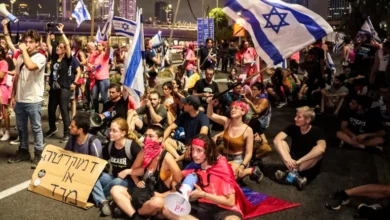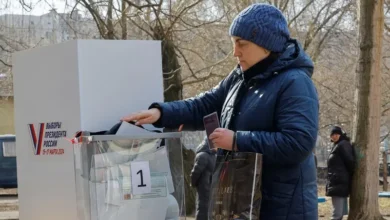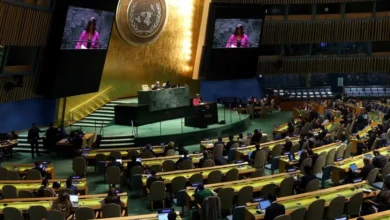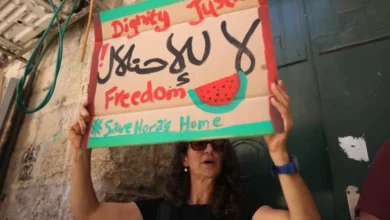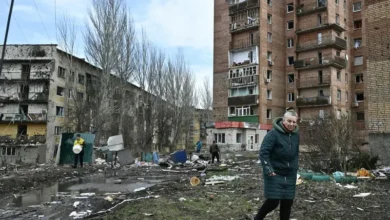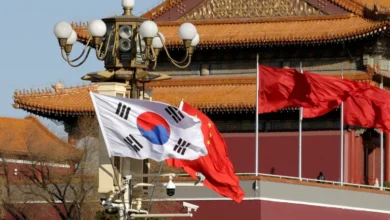Filipinos in Hong Kong were promised a new life in Poland. It never came
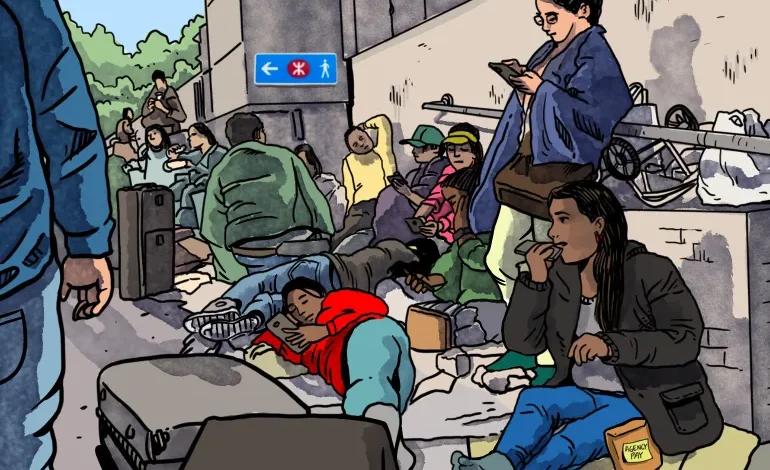
It only took a few minutes of searching online for Divina*, a domestic worker in Hong Kong, to find a recruiter offering the tempting opportunity to work in Poland.
Before long, Divina found herself attending a two-hour orientation session on the 17th floor of a building in the city’s bustling Mong Kok district.
There, she listened as agents listed opportunities in workplaces ranging from hotels to a chicken processing plant and a car parts factory.
“So you would really be convinced that [they] had many contacts in Poland,” she told Al Jazeera.
Divina paid the recruiters 10,000 Hong Kong dollars ($1,279) to initiate her application to work in Europe.
But more than 14 months later, Divina is still waiting for her application to be finalised and has all but given up hope of ever reaching Poland.
Divina is one of at least dozens of domestic workers in Hong Kong who feel cheated after paying thousands of dollars in fees for jobs in Poland that haven’t materialised.
Labour advocates in the financial hub say that the victims of an international network of recruiters and agencies have lost at least 600,000 Hong Kong dollars ($76,785) – but that is likely to only be the tip of the iceberg.
Al Jazeera spoke with five Filipino domestic workers in Hong Kong and read written statements from 20 others who claim to have been deceived by online recruiters and at least two agencies in Hong Kong that worked with a Poland-based agency.
Such cases are far from unique in Hong Kong, which has become a “hotbed for illegal recruitment schemes” due to its 340,000-strong population of foreign domestic workers and the growing demand for migrant workers from Asia to Eastern Europe, according to David Bishop, a university professor and co-founder of the migration-focused social enterprise Migrasia.
Bishop said his team has identified a large number of agencies that engage in third-country recruitment strategies prohibited by Philippine labour authorities.
“These agencies target Filipino workers in Asia with the alleged intention of placing them in jobs in Europe,” he told Al Jazeera, adding that recruiters play on the despair of people hoping to find work opportunities.
A few weeks after her application, Divina was informed that a Warsaw-based agency would be solely responsible for handling her application. The partner agency in Hong Kong that she dealt with directly told her it was no longer involved.
Ultimately, the Polish agency claimed it had not received her payment.
Divina, who is legally required to live with her employer in Hong Kong and often works 16-hour shifts without overtime, was at a loss for what to do next.
“I keep praying, I keep begging [to get back] all our hard-earned money,” she said, adding that while she hopes to get a refund, she still dreams of going to Poland.
Recruitment agents have sold Poland to domestic workers as a country that offers higher salaries – sometimes more than double – better working conditions, and the opportunity to live together with their families in Europe.
After the Philippines, Hong Kong was the top source of visa applications by Filipinos hoping to work in Poland from 2021 to November 2023.
Searching for answers
Maria*, another Filipina migrant worker who applied for a job in Poland with the Mong Kok-based agency, has also been left searching for answers.
“I don’t know where my 10,000 Hong Kong dollars went,” she told Al Jazeera, referring to the first cash instalment she made in May 2022.
Maria said she was told her full application would cost 30,000 Hong Kong dollars (US$3,839) – more than six times the monthly minimum wage of a domestic worker in Hong Kong.
“I thought that because we were using an actual agency in Hong Kong, we would be more protected,” she said.
Maria cannot understand why she remains in the city, while another worker she knows who applied with the same agency at the same time was offered a job and successfully reached the Eastern European country.
In WhatsApp messages seen by Al Jazeera, Maria asked the Hong Kong agency for proof that her money had indeed been sent to Poland, but was told that was “confidential [information] between companies”.
In November 2022, the agency – which currently holds a licence to operate in the city – sent a letter to applicants, claiming that “all the problems” were “from the Poland side”.
When Al Jazeera accompanied Maria on two visits to her agency in Mong Kok last month, the office was closed each time.
A person who answered a number posted on the door questioned why Maria had decided to go there in person, insisting queries be sent over WhatsApp.
Despite repeated efforts, Maria has been unable to meet with anyone from the agency in person.

